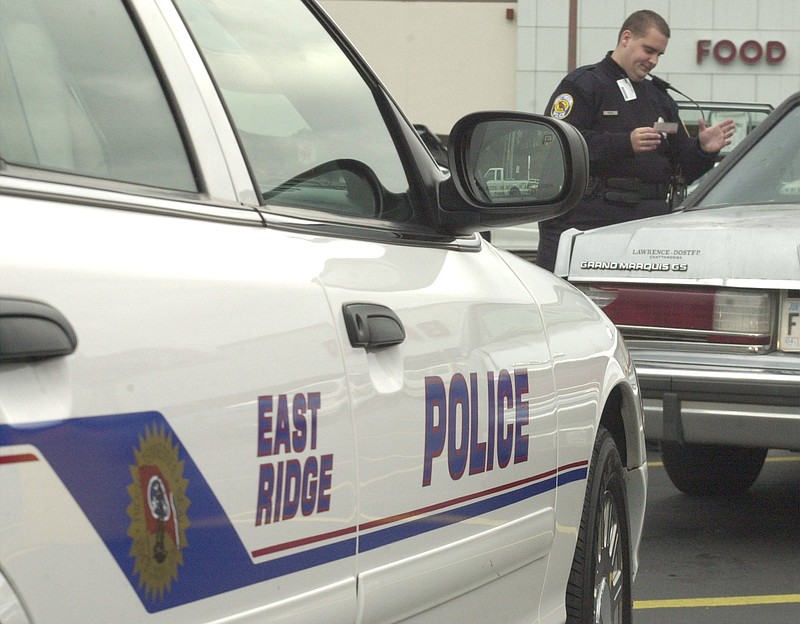Ninety people applied to become East Ridge police officers during 2014 but only 15 managed to pass the department's initial written test -- which is simply designed to measure skills such as reading comprehension, following directions and logic.
The test, which focuses on information not related to law enforcement, is one of the first of a half-dozen steps applicants must take to get a job at the East Ridge Police Department.
Most police departments across the country have similar initial tests.
But not all have the 17 percent pass rate that East Ridge saw last year. At the Chattanooga Police Department, for example, more than 60 percent of applicants passed the initial written exam.
"Most of the applicants who took the test in 2014 did fail the test," said East Ridge police Cpl. Robert Wade.
A number of factors could play into that poor result, said Maria Haberfeld, chairman of the department of law and political science at the John Jay College of Criminal Justice at the City University of New York.
Often, she said, the tests aren't well-designed.
"The tests do not necessarily measure the desired skills of future police officers," she said, adding later, "We have close to 18,000 police departments in this country with many different forms of testing, and in my opinion all of them are inadequate. I have not yet seen one that would measure the social, emotional and change intelligence of the prospective recruits."
There is no single test that all police departments give recruits, said Maggi Duncan, executive director at the Tennessee Association of Chiefs of Police. But the association does recommend that police departments use a test created by a company called Standard and Associates, she said.
Across Tennessee, 72 police agencies use that particular test, she said. But many larger departments, including Chattanooga police, opt to use in-house tests instead.
"The Standard and Associates test that I'm familiar with is somewhat basic," she said. "If you can't pass that, you can't read and write. And if a police officer can't even do that, they don't need to waste their time doing further testing."
East Ridge does not use the Standard and Associates test. Instead, the department buys its written exams from a private Virginia company, International Public Management Association for Human Resources, and receives a new set of initial exams every year, Wade said.
The company's CEO, Neil Reichenberg, said the tests are developed with extensive input from police officers and departments across the country, and that current police officers take the tests to ensure they're relevant.
He said it's up to each local police department to set the passing or failing threshold.
"It's really up to them to set the pass point," he said. "But obviously you don't want to drop it so that 20 percent [correct] is a passing score."
Haberfeld said that another problem for police departments when vetting applicants can be the age and experience of the applicants.
"They are just too young," she said. "I would require a minimum age of 25 and a bachelor's degree before I would test anybody for police work."
East Ridge requires that applicants have a high school or GED diploma. The department currently has 34 officers -- much smaller than the Chattanooga department, which has about 485 officers.
Wade said East Ridge currently has three open spots for officers and that when those spots are filled, the department will be operating at full capacity.
Contact staff writer Shelly Bradbury at 423-757-6525 or sbradbury@timesfreepress.com with tips or story ideas.
